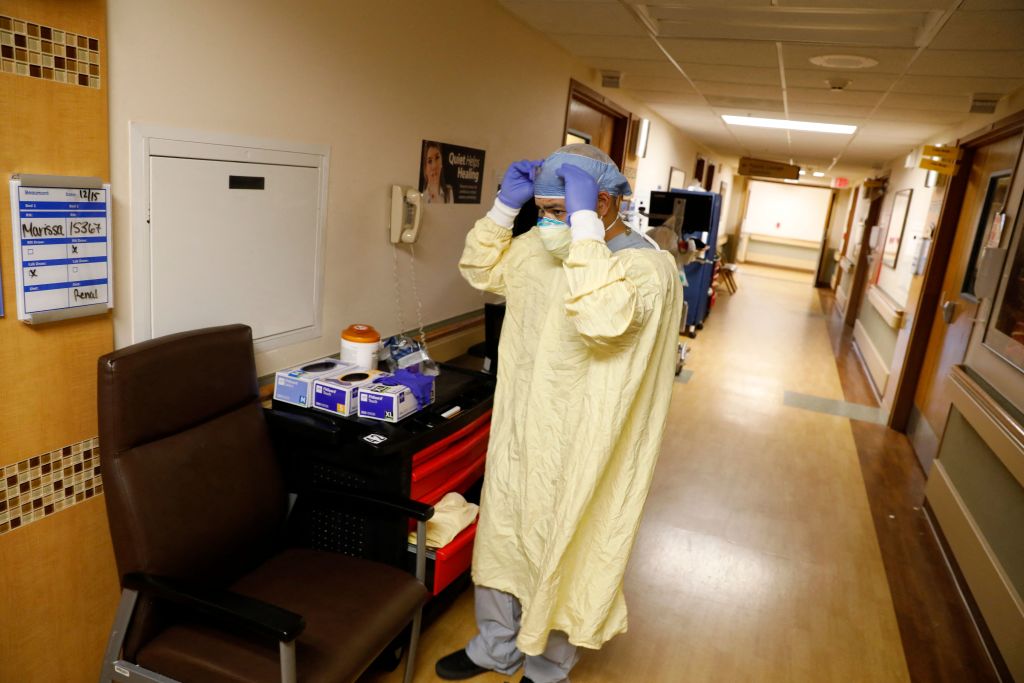FDA reportedly could authorize Pfizer, Merck COVID pills this week: 'The biggest thing to happen in the pandemic after vaccines'


A free daily email with the biggest news stories of the day – and the best features from TheWeek.com
You are now subscribed
Your newsletter sign-up was successful
The U.S. Food and Drug Admnistration could authorize COVID-19 antiviral pills from both Pfizer and Merck as soon as this week, Bloomberg reports, "a milestone in the fight against the pandemic that will soon expand therapies for the ill."
According to three individuals with knowledge of the matter, an announcement may arrive as early as Wednesday. Both pills — Pfizer's Paxlovid and Merck's molnupiravir — work as an at-home treatment for higher-risk individuals who have tested positive for COVID-19. Regulators and developers hope the anti-virals will "ease the burden on stretched hospitals with infections poised to soar through the winter in the U.S.," Bloomberg reports. In trials, Pfizer's pill "showed an 89 percent reduction in hospitalization for patients who received the medicine within three days of developing symptoms, compared to patients who got a placebo."
"It's the biggest thing to happen in the pandemic after vaccines," Eric Topol, director of the Scripps Research Translational Institute, told Bloomberg, noting that the unusual, late-in-the-year timing of the announcement indicates the urgency with which the FDA is operating. That said, don't expect the pills to be immediately available everywhere.
The Week
Escape your echo chamber. Get the facts behind the news, plus analysis from multiple perspectives.

Sign up for The Week's Free Newsletters
From our morning news briefing to a weekly Good News Newsletter, get the best of The Week delivered directly to your inbox.
From our morning news briefing to a weekly Good News Newsletter, get the best of The Week delivered directly to your inbox.
The federal government has ordered 10 million courses of Paxlovid and about 3 million courses of molnupiravir, which clinical studies have indicated isn't as effective. Last month, an FDA advisory panel "narrowly recommended" the Merck pill for use, as some members were concerned about its safety in pregnant women. Read more at Bloomberg.
A free daily email with the biggest news stories of the day – and the best features from TheWeek.com
Brigid Kennedy worked at The Week from 2021 to 2023 as a staff writer, junior editor and then story editor, with an interest in U.S. politics, the economy and the music industry.
-
 The environmental cost of GLP-1s
The environmental cost of GLP-1sThe explainer Producing the drugs is a dirty process
-
 Greenland’s capital becomes ground zero for the country’s diplomatic straits
Greenland’s capital becomes ground zero for the country’s diplomatic straitsIN THE SPOTLIGHT A flurry of new consular activity in Nuuk shows how important Greenland has become to Europeans’ anxiety about American imperialism
-
 ‘This is something that happens all too often’
‘This is something that happens all too often’Instant Opinion Opinion, comment and editorials of the day
-
 A Nipah virus outbreak in India has brought back Covid-era surveillance
A Nipah virus outbreak in India has brought back Covid-era surveillanceUnder the radar The disease can spread through animals and humans
-
 Trump HHS slashes advised child vaccinations
Trump HHS slashes advised child vaccinationsSpeed Read In a widely condemned move, the CDC will now recommend that children get vaccinated against 11 communicable diseases, not 17
-
 Covid-19 mRNA vaccines could help fight cancer
Covid-19 mRNA vaccines could help fight cancerUnder the radar They boost the immune system
-
 FDA OKs generic abortion pill, riling the right
FDA OKs generic abortion pill, riling the rightSpeed Read The drug in question is a generic version of mifepristone, used to carry out two-thirds of US abortions
-
 The new Stratus Covid strain – and why it’s on the rise
The new Stratus Covid strain – and why it’s on the riseThe Explainer ‘No evidence’ new variant is more dangerous or that vaccines won’t work against it, say UK health experts
-
 RFK Jr. vaccine panel advises restricting MMRV shot
RFK Jr. vaccine panel advises restricting MMRV shotSpeed Read The committee voted to restrict access to a childhood vaccine against chickenpox
-
 Texas declares end to measles outbreak
Texas declares end to measles outbreakSpeed Read The vaccine-preventable disease is still spreading in neighboring states, Mexico and Canada
-
 RFK Jr. shuts down mRNA vaccine funding at agency
RFK Jr. shuts down mRNA vaccine funding at agencySpeed Read The decision canceled or modified 22 projects, primarily for work on vaccines and therapeutics for respiratory viruses
